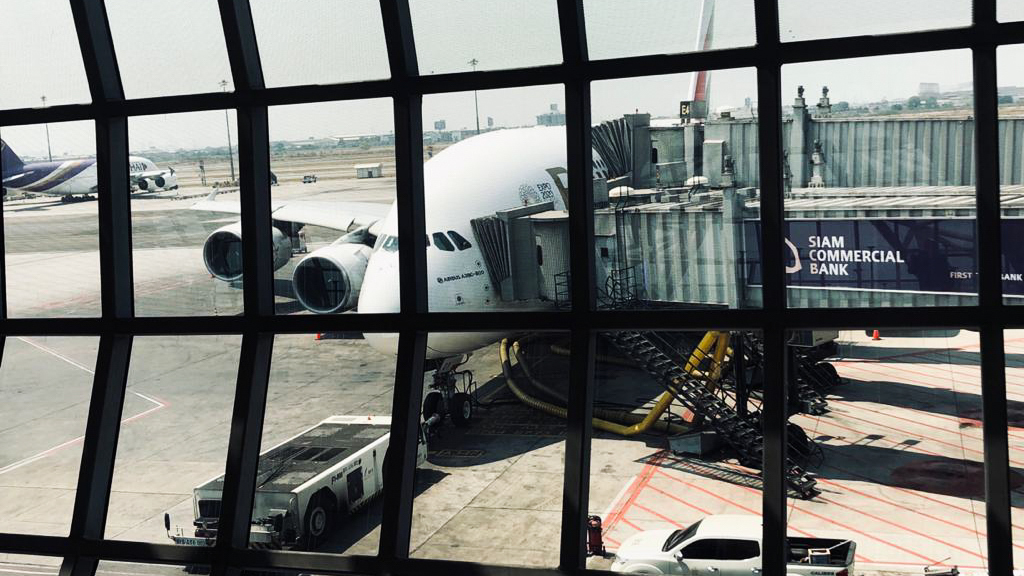Santiago (21st Century Wire) — Imagine that you are in Hong Kong, in a city where “you are actually not supposed to be”, in the first place. You are ready to go home, to South America. But just two days before your departure, via Seoul and Amsterdam, your first Sky Team carrier, Korean Air, unceremoniously decides to cancel all flights from the territory.
Several Korean religious freaks, apparently, are to blame.
On 22 February, 2020, Mail Online, reported:
More than half of all South Korea’s coronavirus cases are linked to a secretive ultra-religious cult whose leader believes he is immortal.”
Just reading that, I knew I may get royally screwed. Nothing good comes from ultra-religious fanatics, and South Koreans are notorious for their political and religious extremism.
But that was not all. The report continued:
There are further reports of outbreaks in the psychiatric unit of a hospital in Cheongdo county, infections in Busan, and on the island of Jeju.”
Korean Air, which was supposed to fly its glorious new Boeing 747-8 from Hong Kong to Incheon (Seoul international airport), has been carving its service, first reducing it to Boeing 777s, then to Airbus 330s, and in the end, cancelling all of its flights 3 days before my departure.
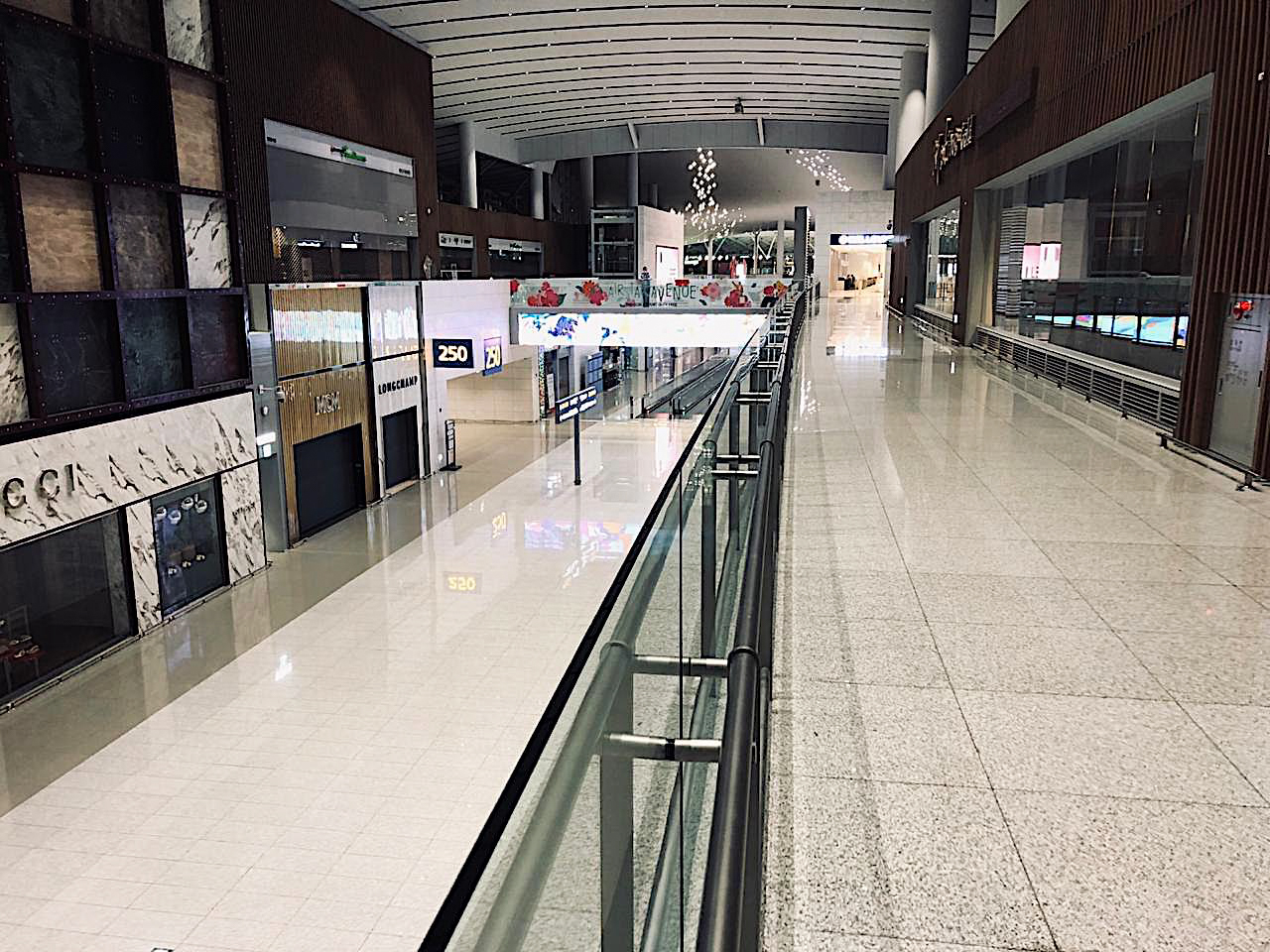
To secure my monstrously long commute, I spent most of my Sky Team miles, to secure a business class set of tickets.
There was a reason for it: I could not see. Well, I could hardly see, at all.
Before Hong Kong, I had worked in Kalimantan, in the Indonesian part of Borneo, on an island which has been totally plundered by greed, corruption and the ineptness of the Javanese neo-colonialists. An island where the present administration of President Joko Widodo (known as “Jokowi”), is planning to build and move the new capital city, abandoning the enormous, more than 20 million population sized urban area of Jakarta which is “sinking”, ridden with countless urban slums, lack of sanitation and safe drinking water.
Writing a book about this monumental insanity, I continued investigating. And In a process I got attacked, as almost anyone who visits Borneo does, by various and vicious parasites. My guts got infected by something terrible, and then my eyes. I flew between Balikpapan and Pontianak on Lion Air’s Boeing 737 (yes, that Lion Air, which keeps cramming and periodically crashing planes, ever since the beginning of its operation). I have no idea whether my eyes got attacked there, on board, or in some filthy ditch near the palm oil plantations, where they are cutting down what is left of the tropical forest.
Wherever it was, it did get infected. First the left eye. It was like a white foam. I could only see extremely abstract contours, as if between me and the world, there was a thick, white blanket. It was scary, very scary. I am not only a writer and a philosopher, but I am also a filmmaker and photographer. Doing what I do and not seeing almost anything is, you know, quite terrifying.
Before flying to Hong Kong, where I have been covering the riots ignited and financed by the West, I stopped over in Bangkok and went to an eye clinic, but the doctors there only cared about the payment. They had no clue what was happening to my eye.
Then, in Hong Kong, as Korean Air cancelled my flight, my right eye also got attacked.
At night, as I lay awake in my hotel room, I suddenly recalled how on board the Garuda Indonesia, between Pontianak and Jakarta, at least four people were coughing, loudly and desperately. Nobody was checking them. The Indonesian government had suggested that people pray, to avoid the outbreak of the coronavirus.
“What else,” I thought. “Am I also going to get the coronavirus?”
*
I refused to succumb to this horrible situation.
By then I knew that Korean Air was determined to ruin me. While Air France (my Sky Team carrier) and KLM were offering re-routing and compensation to their passengers stranded in Asia, Korean Air showed a clear and vulgar indifference. It did nothing to help. It never even replied to my queries.
I was also aware of the fact that I may have to travel, at least for 7 days, through various detours, and without seeing almost anything. Also, with twisted guts and a diabetic attack which had kicked my backside because of the tremendous stress.
Was it worse than being in Syrian Idlib, in Afghanistan, or near Mosul after it had been taken over by ISIS?
In a way, it was. Being blind, chased by the new coronavirus type, with airports closing one after another, and with the prices of airline tickets going sky-high, everything seemed to be demeaning, depressing and unsettling.
Strangely enough, I felt no fear of the COVID-19. I kept discussing the new type of coronavirus with my medical colleagues, through WhatsApp, until my eyes totally let go and collapsed.
I had to make it through, to Santiago de Chile, which happened to be on the total opposite side of the world.
Western doctors that I knew, were sending long and useless advice which mainly repeated “go see a doctor” idiocy. I told them I was in Hong Kong, which had been experiencing a near total lockdown. I told them that I had already been to a Thai eye doctor who had absolutely no clue about my condition.
Then, I realized that I could not rely on those that I am fighting against! I needed comrades to help me.
My family contacted a Syrian lady doctor, an expert in infectious diseases, and a sister of my friend in Damascus. I sent photo-images of my eyes. She saw, asked for symptoms and prescribed some powerful oral antibiotics and drops. I managed to convince a Hong Kong pharmacist to sell the medicine over the counter: I said it was a matter of life and death. She understood.
Syria and China saved me. People were guided by intuition, not by rigid rules.
I was going home.
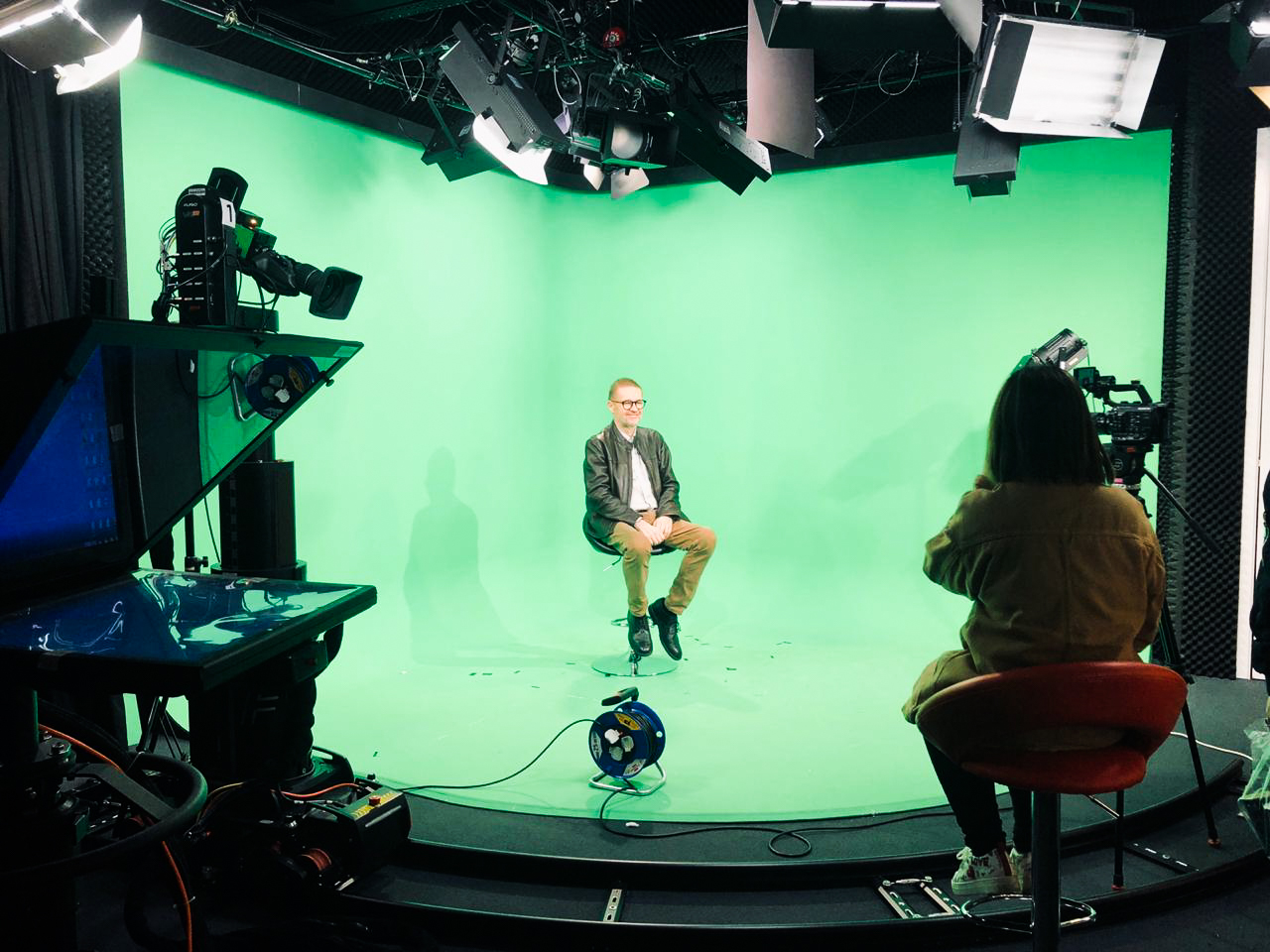
My nearest and dearest began helping me to re-route. It took days. It was horrible.
Airlines, from Korean Air to Cathay Pacific, began to cover their backs; trying to squeeze every penny from those who were still able and willing to fly. Some one-way economy tickets for 2 hours flights shot up to 1,600 US dollars. Business class on certain routes became miraculously cheaper. As long as one could search, and as long as one could look at a screen.
To avoid quarantining, and to get out of Hong Kong, the easiest way was to fly in the totally opposite direction than where I was heading: to Bangkok, on Emirates. A few business class tickets were still available, but at $600, on a route where they used to cost under $400. It was one of the last available ways out of the almost locked out city.
I grabbed a seat on the Airbus 380-800. I somehow pulled through the totally empty Hong Kong Airport. I could hardly see anything. There were hardly any seats to rest on in the departure hall. My backpack was almost 20kg heavy, with a professional camera, computer and mobile phones.
I have no idea how I managed to get to my plane. With my damaged eyes, I could still see those huge numbers indicating gates. I collapsed into my seat. The super-jumbo took off, Southeast; away from where I was trying to fly. I was some 20 thousand kilometers away from Santiago de Chile.
Santiago was bleeding, too! Its eyes were damaged. People were fighting against the fascist regime imposed on them by Washington, and by the multinational corporations, in 1973. Like my own, their eyes were inflamed; some, over 300 individuals, even lost their eyes, as they were shot at by the police.
On board my flight to Bangkok, I was not sure whether I was going to be able to return home, alive.
But I was going, through the night, towards Bangkok. Would they even let me in? The first step.
*
They did. Miraculously. I must have looked like shit, but an unfriendly, insulting border police officer slammed a stamp into my passport, fingerprinted me, photographed me, and in the end, let me go.
That was it. Hong Kong does not stamp passports. Officially, my journey would begin in Thailand.
I had only 9 hours on the ground. The airport was eerily empty. People looked like streetwalkers, wearing masks, some even things resembling ski-glasses. I went home to my place by the river, without even opening my luggage, I collapsed into my bed, but could not sleep the entire night. Tugboats were pulling ghost-like barges, 31 floors below. I could not see the barges, only contours. This was my first day into the journey.
In the morning, very early, I somehow managed to return to the airport, and rechecked my luggage all the way to Suriname, as that was the only airport in South America, which I was able to get to free (using my air miles) business class tickets, at least from Seoul. Instead of re-routing or compensating me, Korean Air which had brutally canceled my tickets from Hong Kong, was now charging me something absolutely ridiculous, to get from Bangkok to Seoul, where I was to catch a KLM flight to Amsterdam and many hours later, to Paramaribo.
Thai fingerprinting and photographing again. The taking the shoes off, precisely as the U.S. masters have ordered. The saturated spite of the Thai officials suffering from superiority complexes, followed by an old, dirty, 777-300 Korean Air aircraft. I crashed into its unmaintained seat. Just glanced at the food (inedible-looking, cheap version of bibimba), and slept all the way to Seoul.
*
Coronavirus, greed, extreme capitalism, rudeness: everything accumulated into this monstrous journey.
Taking off from Hong Kong and later Bangkok, I experienced almost absolute blindness. Then, the Damascus-prescribed antibiotics began to kick in. They were terrible, but I was warned. Either or. Either blindness and white fog, or total exhaustion, a collapsed body, but clearer sight. I opted for sight.
I landed in Seoul, like a zombie, heavy rucksack on my back, wobbly, almost desperate.
My luggage was automatically transferred all the way to Paramaribo, using the Sky Team system.
But this was South Korea. At the transfer desk I was refused boarding passes: “Go through security, then go to Sky Team Lounge and wait 8 hours for your flight. They will give you boarding passes at the gate,” I was told.
At the security check, they could not read English, or understand what was written on my E-tickets. 3 times I was humiliated, going back and forth between the transfer desk and security checkpoint. The staff were clearly enjoying the game, perhaps waiting for when I would finally collapse. The transfer desk person refused to walk with me to the security check. Security people were stubbornly refusing to read English.
This was precisely one of those moments when one loses all hope in humanity. You think: “Your body will let go! You will collapse, at any moment. Collapse and die.” All this, just because you have been putting your life on the line, for some poor, devastated, enormous tropical island. Just because some South Korean religious freaks went bananas. Just because of human indifference and racism. Just because, just because… The brave new world. The creepiness of a capitalist, right-wing trash universe.
I made it to the lounge, eventually, moving through the empty airport. Everything was shut down. The lounge was empty; almost nothing to eat there. The coronavirus scare.
At this point, all I wanted to do was to sleep. I found a transit hotel and paid an exorbitant price for only a few hours of rest. I collapsed. I cursed capitalism, greed, and humanity’s collapse.
I knew that as I was entering the disturbing world of dreams, or should I say nightmares, the People’s Republic of China, as well as Cuba, were fighting for our human race, against all the odds, against the monstrous propaganda originating from the West.
I had no right to kick the bucket in some bloody transit hotel room at the Incheon Airport. China, Cuba, Russia, Venezuela needed me. I saluted my comrades, the old fashioned way, and fell asleep.
*
The Korean Air clerk at the gate had no idea where Paramaribo was, or where Suriname is located. He was moonlighting for KLM, but was wearing a Korean Air uniform.
I told him what I thought about Korean Air. Before that, he had not liked me for flying to “some Paramaribo”, but after that he started to hate me, openly. The fact that I am a platinum member of his alliance meant nothing.
He began treating me as if I was the coronavirus incarnated.
By then, I could hardly see him. My legs were about to collapse, at any moment. But I was not going to show weakness.
He began: “Where is your visa to Suriname”?
“Here,” I replied.
“What is that?”
“My visa.”
“So, where is your visa?”
“My visa is here.”
“You have to show it to me.”
“It is in front of you.”
Korean Air had stolen my money by cancelling flights and by refusing to re-route me. Now, it was ruining my health. But, there was zero remorse coming from the staff.
Eventually, a supervisor came and began abusing me, too.
I told her directly to her face: “You should learn from North Korean people how to treat visitors!”
Her apparatchik essence kicked in. She began threatening me.
I pulled out five press cards: “Do you want to arrest me for expressing my opinion?”
She started to look hesitant. I demanded her name card. She said she does not have one. Bullshit: in north Asia everybody has one.
“Are you a security agent or an airline staff?” I asked her, point-blank. I knew that in South Korea, it was the same thing.
Finally, she gave me my boarding passes, together with a look, which was full of hate.
This legendary racist horror, South Korean -style then disappeared. I saw, the way she humiliated herself, bowing and kissing the asses of her fellow, South Korean, citizens.
I was welcomed on board by an outraged flight hostess who was originally from Suriname: “She did not even know that my country exists, did she?” She patted me on the shoulder.
*
While Seoul was terrified of the coronavirus, the Europeans looked totally indifferent to the possible danger.
That was on March 3rd, 2020.
After the more than 11 hours flight from Seoul to Amsterdam, Schiphol airport appeared to be totally relaxed.
Even passengers from Seoul to Amsterdam looked undisturbed. No masks, no panic. Snoring contently, into the air.
777-200ER landed very early, at around 5 am.
I went through security, and located the Sky Team Lounge. It was stuffed with excellent food, but it happened to be totally empty. I found a comfortable chair and fell asleep, almost immediately. When I woke up, the lounge was full; literally packed.
After being used to masks being worn all over North and Southeast Asia, what hit me was the absolute lack of any face protectors at the major Dutch airport.
People were drinking, eating tons, talking. There was no sense of any emergency.
European and North American daily newspapers, in all languages, were full of the coronavirus headlines. Those freely distributed in the lounge, were only attacking China, totally and bizarrely avoiding the absolute lack of preparedness in the West.
Even the Italian daily papers, at that time at least, showed no signs of concern.
Not far from me, a group of Italian travelers was chatting, embracing, kissing, drinking prosecco and coffee for breakfast, and calling home on their mobile phones.
There was only one lax coronavirus checkpoint, upon arrival from South Korea, at the time one of the hardest hit countries in the world.
In retrospect, this was all totally bizarre and irresponsible.
Was the Western medical system so unprepared? Or was it told, even ordered, to behave in such a manner?
Waiting for my flight to Paramaribo, I called my 84-year old mom, who has been living in Germany, where she is married.
“They feed us with such crap,” she told me, in Russian. “I mean, that stuff that they tell us through the mass media. I don’t believe anything they say or write,” she concluded. “All this is not going to end well.”
And she was absolutely right.
*
The Queen of the Sky, a majestic old Boeing 747-400 took off on time, towards Suriname. Both KLM and British Airways were still flying these beautiful planes, although there were rumors that KLM will retire most of them in 2021.
This was the last flight of the captain. He was leaving KLM. The flight hostesses were urging all the passengers to write something short, something personal. There was supposed to be a great celebration, a great party, in Paramaribo.
By then, I was almost losing my consciousness. My eyes cleared, almost totally. But the monstrous antibiotics and chronic exhaustion, doubled my body down. Chile appeared to be far, far away.
Again, no masks, no precautions. The 747 was going southwest, full of passengers, with zero medical safeguards.
The plane landed, and it was sprayed with water by a fire engine, to celebrate the last flight of the captain.
No jetways: passengers had to climb down off the enormous aircraft. Those who couldn’t were met by special vehicle, functioning as a lift, and by a bus.
But the lift and other vehicles were quickly engaged by the celebrations of the captain’s retirement. Countless Surinamese passengers who were returning from Holland, after being treated in European hospitals, were waiting in the lift and the bus, abandoned by the ground staff. No one to measure their temperature. Nobody to even ask what kind of medical conditions they were suffering from.
By then, I had turned into a zombie. I somehow managed to sail through the immigration of a shack defined as an airport.
I almost collapsed. I asked for help, but was told by a local staff member: “If you feel sick, go get medical help”. Later, the hotel manager told me that this is the “usual treatment people get here”.
I somehow got stabilized, by getting my hands on a luggage trolley. The universe was spinning around me.
My pre-paid taxi did not wait for me. The hotel was some 50 kilometers from the airport.
In the end, I went to the airport police. Instead of helping me, they began a rude scrutiny, clearly trying to extract some bribe.
“I feel very sick,” I said. They couldn’t care less.
No questions asked about what had made me sick. Was it the coronavirus? By then it was already called COVID-19, and it was on my tail, chasing me as I was circling the globe.
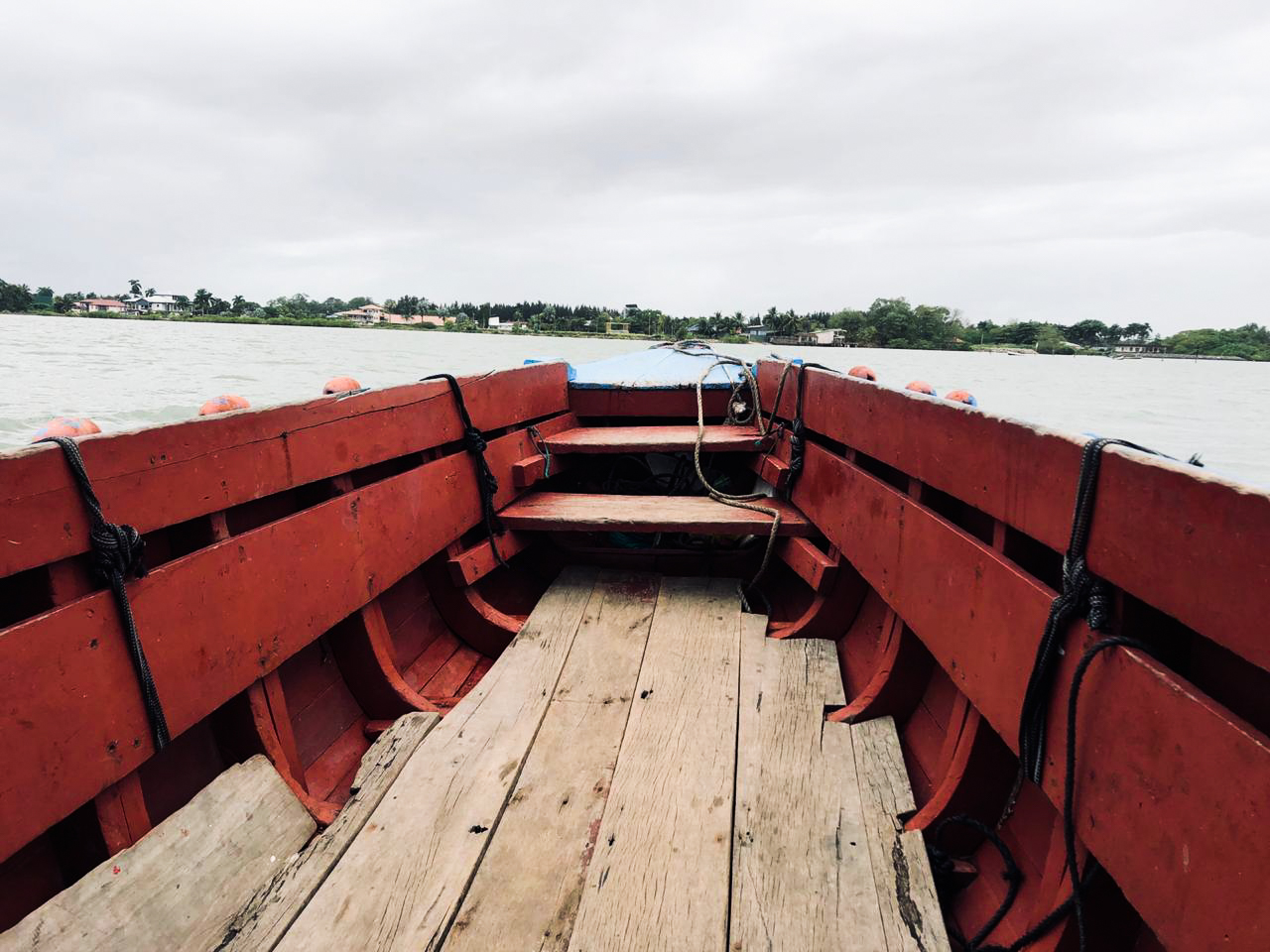
I filmed the Suriname River and the rainforest of Suriname, to show the contrast with Borneo.
Suriname has been terribly damaged, but Borneo has been ruined, endlessly and some say, irreversibly.
I only had one full day. I had to work fast. My Indian driver had to hold me up while I was working, otherwise I’d collapse.
On the 5th March, I returned to the airport, ready to fly to Belem, Brazil.
Further humiliation, overcharging, insults. I wanted to get out. And never return. One day I will write about those repulsive 48 hours in Suriname, but not now.
A 90 minutes flight, and everything fully changed. Even under the fascist government of Bolsonaro, Brazilians were kind and caring.
Shortly after the plane door opened in Belem, I was put into a wheelchair and zipped through immigration and other formalities. There was no overcharging, no humiliation and no dramas.
Brazil was what it always has been: a great country with dire problems. But a great country, nevertheless.
The next day I flew from Belem to Rio de Janeiro, via Brasilia.
Still, almost no masks. Once or twice my temperature was checked. That is all.
In Belem, all the Amazon riverfront cafes were kept open.
In Rio, while waiting for my flight to Chile, I went to the legendary and packed Vinicius bosanova club, and to the totally packed Caso de Chuva cultural center, where Tom Veloso was singing the songs of Gilberto Gil. Absolutely no precautions, no masks, people squeezed like sardines. The evening of March 8th.
A day later, on March 9th, the airlines in South America began catching up with turbo-capitalist games. Chilean LATAM, when I asked for an extra legroom seat, suggested that I pay $1,500, for 4 hours on board a small Airbus 320 plane. Naturally, I refused.
Santiago airport took the coronavirus seriously. There were several checkups. End of the games.
This is when strange things began to happen.
Two days after I landed in Santiago de Chile, South America moved from inactivity to hyperactivity.
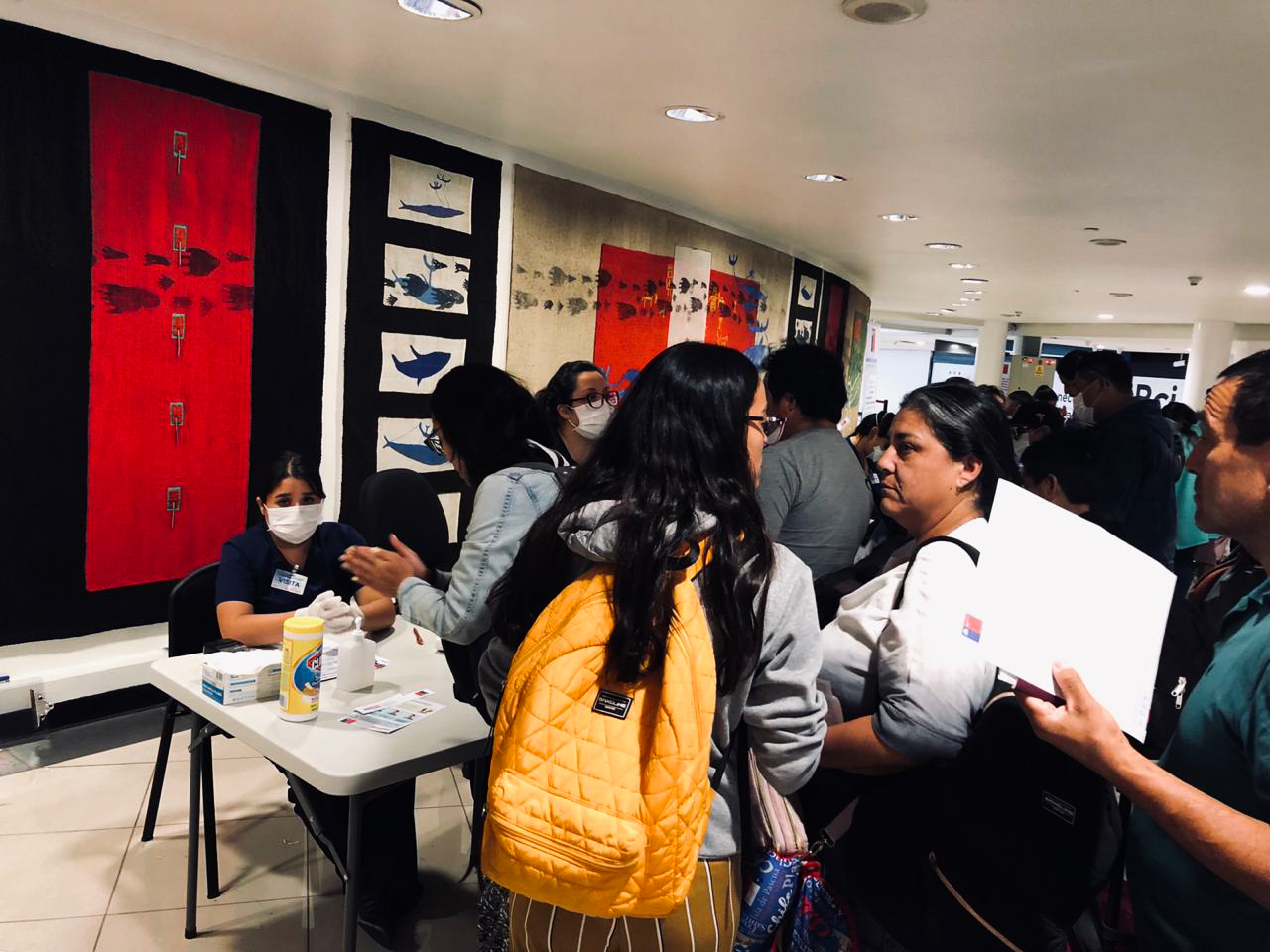
One country after another began lock-ups; from Argentina to Peru, to Chile.
Santiago began resembling a ghost town. Entire regions of Chile began to close down.
I needed to recover, quickly, and to travel to Venezuela and Cuba, but it was becoming thoroughly impossible.
I arrived, I survived, but right away, I was grounded.
*
From one extreme, to another. In South America and the West.
When confronted with the terrible medical emergency, China reacted like a Communist country, which it is. It mobilized in the name of the people, and began fighting the battle. It acted rationally and responsibly. It never performed a total lockdown.
It demonstrated tremendous enthusiasm and discipline.
Without thinking twice, it sacrificed its economic interests, putting the people first.
It has won the battle; beating the virus back. Almost no new cases now. The hospitals constructed to treat the coronavirus are closing down. Doctors and other medical staff are celebrating.
Cuba is near to developing a vaccine for the new coronavirus.
China and Cuba are cooperating. China is sending airplanes with help to Italy, Spain and Serbia.
In the meantime, people in certain Western countries are being told that over 80% of their citizens will get infected, and that hundreds of thousands, even millions, will die!
Why?
Why the hell, really?
Some nations, from Italy to Chile (where I am right now), are locking up everything: entire countries, entire regions, everything.
At the height of the crises, Beijing was open, and so was Shanghai and almost all other major cities. Flights were arriving and departing. What confidence! What a success!
A clear victory of socialism over capitalism.
Just look at the Western nations, at Southeast Asia, or at South America; people are petrified. Control of the population is much more brutal than anything that has ever been implemented in China.
And what do they tell the Italians, French, Brits and North Americans? That they will be dying like flies! Even now, when this essay is being written, more Italian people have died, than the Chinese. That is, on a per capita basis, about 22 times more. And in the West, things are getting worse and worse.
And, until now, it is not yet clear, who brought the epidemy to Wuhan, to begin with. Many believe that it was the U.S. military. Still, China never stopped behaving like an internationalist country!
*
During my more than 20,000 kilometers long journey, I have seen a frightened, divided planet.
And then, I saw a great Chinese victory, and a Cuban victory.
I read how Cuba has rescued 600 people stuck on a cruise ship, the MS Braemar, belonging to one of its tormentors.
I witnessed panic in extreme right-wing countries like Chile. I was ready to drive south, to Araucaria, to speak to the discriminated against Mapuche indigenous people (according to Word they do not exist, as I am given red error sign), but precisely that area got hermetically sealed, closed down, one day before my planned 900-kilometer journey, and a month before the planned constitutional referendum.
In the West, and allied countries, the coronavirus has been used for political ends.
I am almost certain the Bolivian elections will be ‘postponed’, “because of the coronavirus”, to prevent socialist MAS from regaining power.
I am back home, but home is not a real home, anymore.
Home is now China, Cuba, Russia. Countries which are fighting against the Western tyranny that is sacrificing millions of human lives.
The coronavirus is a barometer of the state of the world.
It shows which countries bring shame to the word “humanity”, and which bring pride.
Feature photo | Andre Vltchek
Andre Vltchek is a philosopher, novelist, filmmaker and investigative journalist. He has covered wars and conflicts in dozens of countries. Five of his latest books are “China Belt and Road Initiative”, “China and Ecological Civilization” with John B. Cobb, Jr., “Revolutionary Optimism, Western Nihilism”, the revolutionary novel “Aurora” and bestselling work of political non-fiction: “Exposing Lies Of The Empire”. View his other books here. Watch Rwanda Gambit, his ground-breaking documentary about Rwanda and DR Congo and his film/dialogue with Noam Chomsky “On Western Terrorism”. Vltchek presently resides in East Asia and Latin America, and continues to work around the world. He can be reached through his website, his Twitter and his Patreon


